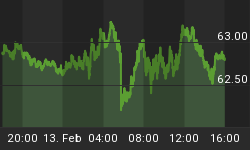Unlike industries such as retail, telecom, media and transport, the global banking sector has remained amazingly resistant to disruption by technology, continuing to march to its own beat.
New models such as open banking still play second fiddle to traditional banking models, while many of the biggest and most promising blockchain-based fintech projects have lately hit the skids.
But that might be about to change. The consumer financial services sector is ripe for disruption, and the experts know it.

(Click to enlarge)
Source: Harvard Business Review
A new class of 'neobanks' is emerging in the U.K. and Eurozone, and looking to challenge the establishment.
These app-only startups offer branchless, digital propositions at far lower costs than your typical bank.
Many boast slick apps, allow freezing and unfreezing of cards at the touch of a button, and they can analyze customer spending in real-time and send budgeting nudges.
The banks are run solely through a smartphone or tablet with no physical branches. Partner firms plug into the apps thus creating a marketplace of services that range from investments and loans to energy and insurance.
The banks mainly rely on fees from their partners for revenue, meaning that massive scale is required to make the model work.
Getting customers to sign up to banks that sometimes offer zero protection for deposits might sound like a tough sell. But it turns out that boatloads of customers see digital banks as viable alternatives to their high-street counterparts. Related: The U.S. Sanction Commodity Shock
Founded 5 years ago, Revolut, one of the digital upstarts, has amassed nearly two million customers and was recently valued at $1.7 billion during its third round of funding, thus making it the first ever digital-only bank to attain unicorn status. That's nearly half as many accounts as those held by the country's much bigger TSB Bank Plc.
Unlike rivals such as Monzo and Starling, Revolut does not even have a full banking license and customer deposits are not protected by the Financial Services Compensation Scheme (FSCS).
But maybe deposit protection is overrated.
Revolut more than makes up for that deficiency through a raft of attractive features including a highly secure platform, free spending and withdrawals abroad, market exchange rates for foreign currencies, loan services via Lending Works peer-to-peer services and a payment-splitting feature that allows users to share costs such as household bills with other Revolut users.
Fintechs Offer Higher Customer Satisfaction
A 2017 World Retail Banking Report revealed that fintechs such as Revolut in general provide higher customer satisfaction than traditional banks. That's because these businesses put their money where their mouths are and actually listen to what customers need. Many digital banks let customers decide exactly which features they need in their apps then incorporate these functions in future iterations.
Related: Telegram Cancels Its Public ICO After Raising $1.7 Billion
Still, these banks are struggling to stay afloat with so many giveaways and thin revenue streams. In fact, Revolut's losses have been expanding as it continues to scale up, and the bank now says it plans to borrow some ‘ancient’ banking features such as loans and overdrafts to supplement its marketplace revenues.
Revolut has been adding 6,000-8,000 customers a day, and plans to hit 100 million customers over the next five years.
With an impending boost to come from regulatory changes aimed at stimulating competition in the financial services sector, Revolut might just end up becoming one of EU's largest banks.
By Alex Kimani for Safehaven.com
More Top Reads From Safehaven.com:

















